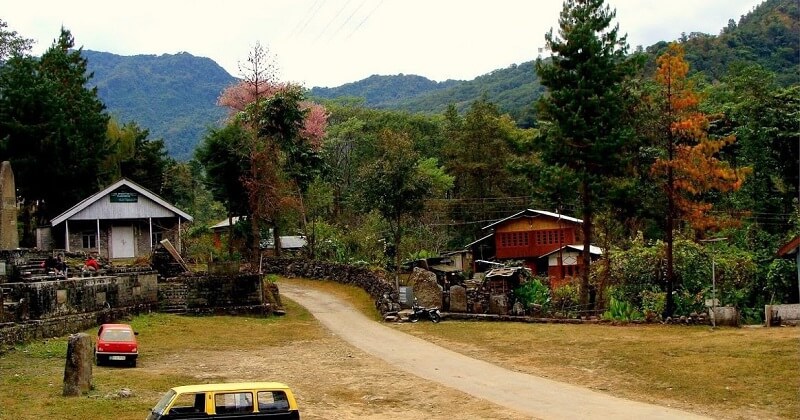
Over a hundred years ago, advancing British troops found themselves facing a determined warrior tribe in the highlands of Nagaland. The Angami men of Khonoma, famed for their martial prowess and strategic skills, fought a resolute battle to safeguard their territory, inflicting heavy casualties on the foreign soldiers. The village is recorded to have resisted British rule in the region from 1830s to 1880. Finally a truce between the two stopped further bloodshed, but meanwhile Khonoma village had etched its name into the history of Indian resistance to the colonial invasion. Christianity was introduced in the village in 1890, and today most of the villagers are of this faith.
The most special thing about the village however, has to be the fact that Khonoma has banned hunting and logging in their forests. The 90s saw unchecked deforestation following which the elders of the village took a collective decision to ban all logging activity in the forests of their community. A complete ban in hunting too was upheld by the Khonoma Nature Conservation and Tragopan Sanctuary in 1998.
Preliminary ecological studies done so far record the use of about 250 plant species, including over 70 for medicinal purposes, 84 kinds of wild fruits, 116 kinds of wild vegetables, nine varieties of mushrooms, and five kinds of natural dyes from the surrounding forests in the village. Local people have recorded about 204 species of trees, nearly 45 varieties of orchids, 11 varieties of cane, and 19 varieties of bamboo. Villagers also record 25 types of snakes, six kinds of lizards, 11 kinds of amphibians and 196 kinds of birds (of which English names for 87 have been identified, including the grey-billed or Blyth’s tragopan, a threatened bird mentioned in the red data book of IUCN). 72 kinds of wild animals have also been reported by the local people; however English and scientific names for all have not been recorded yet. These include tiger, leopard, serow, sloth bear, Asiatic black bear and common otter.
Conservation is only one of the elements of social empowerment at Khonoma. Visitors to the village are confronted with a bewildering number of activities and processes that its residents seem to be engaged in. Some of these are new, some age-old. Khonoma may well be the only village in India that has a global citizenry with an active self-identity; every year, 1 September is celebrated as the village’s ‘birthday’, with Khonomaians from far and wide coming to the village to celebrate, or carrying out celebrations wherever they may be.

Post Your Comments